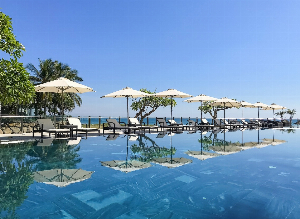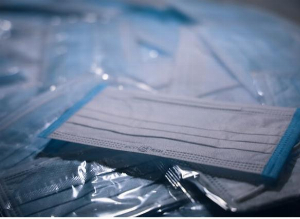Cancer: How to go on holiday while undergoing treatment?
Published 4 Feb 2022 • By Claudia Lima
Every day, around 1,000 new cases of cancer are discovered in the UK. Fortunately, tremendous strides have been made in medical treatment and the mortality rate is falling. The grim perception of cancer, often associated with death, is gradually shifting towards an outlook of cancer that focuses more and more life and recovery.
Nonetheless, despite the increasingly innovative, more effective, and less traumatic treatments, the after-effects and suffering associated with cancer are still unacceptable and every patient should be able to take a break and go on holiday!
So, how can this be done? How to manage a holiday while still receiving treatment?
To mark World Cancer Day on 4 February, let's take a look at how to organise and the precautions to take when you have cancer and want to go on holiday.
Read our article for more!

When one is affected with cancer, one's life is put on hold for the duration of the illness and treatment. While fighting the disease, it is necessary to be able to "take a break", to go on holiday, as it can be very beneficial for patients and those around them.
Just because you are undergoing treatment for cancer does not mean that you are not allowed to go on holiday.
However, cancer has many repercussions on patients' daily life, so it can sometimes be difficult to make holiday plans, and all the preparations you need to do can be an additional source of anxiety.
Things you need to consider before going on holiday
Make an appointment with your oncologist before you travel
In order to enjoy your holiday, it is preferable to obtain your doctor's agreement. Only ongoing clinical trials or major contraindications could make the doctor refuse. In certain situations, the doctor may agree to postpone a chemotherapy injection.
Prepare the necessary amount of medication and medical supplies/equipment
You should continue taking your medication as recommended by your doctor. In addition, it is possible to request a prescription specific to your needs before the departure. Medical equipment should be delivered to your holiday destination in advance.
Find information on medical facilities at your holiday destination
You will need to locate the chemist's, hospitals and other medical facilities that may be useful. Your medical information can be transferred in advance. If you are going abroad, you should consider taking out repatriation insurance (talk to your travel insurance provider about it).
Know when to travel
After a radiotherapy session, it is possible to travel on the following day.
In the case of chemotherapy, however, the body's reaction to previous treatments must be taken into account. How did your body react? How long did it take you to recover?
Keep your medical records and your medication at hand
Your doctor should indicate which medicines you should have on you at all times. It is also important to keep all documents related to your condition (prescriptions, health insurance card, etc.) within easy reach.
Take your treatment correctly
Taking your medication correctly is essential for maintaining your health and enjoying your holiday. If regular blood tests are required, for example, it is important to make arrangements for this to be done at your holiday destination.
Protect yourself from the sun
It is recommended to avoid the sun after your have undergone radiotherapy or chemotherapy, as skin reactions can be serious.
If you are undergoing radiotherapy, you should avoid exposure to the sun for at least a year, and you should use sun cream with a high sun protection factor (SPF) for the part of the body that has been affected, for life, as skin in this area will always be very fragile. After chemotherapy, you must be careful not to get sunburned, as it may happen very quickly, especially when you are getting out of water. It is highly recommended to cover yourself up completely in order to avoid exposure to the sun.
Know which activities your can enjoy and how you can adapt them to your illness
Appropriate physical activity improves patients' quality of life, and sport helps them cope with fatigue and side effects from cancer treatment. However, it is important to moderate your efforts and to rest when you need it.
For other leisure activities such as visits to museums, hikes and others, it is necessary to adapt to the conditions (weather, crowds) so as not to add to your anxiety and also to reduce the risk of getting tired.
If you are travelling abroad, you can get a European Health Insurance Card (EHIC), which allows free or reduced-cost emergency treatment in public hospitals of the 27 countries of the European Union, Iceland, Liechtenstein, Norway and Switzerland. Some countries outside of the European Union also have mutual healthcare agreements with the UK. In this way you will need to show a document that proves that you are a UK resident, such as your UK passport or driving licence.
Sometimes, financial difficulties can be added to medical ones. Some cancer charities, such as Macmillan Cancer Support, offer financial help for patients and their carers who would like to go on holiday.
Share your thoughts and questions with the community in the comments below!
Take care!
Sources:
Cancer Statistics for the UK, Cancer Research UK
Données globales d'épidémiologies des cancers, e-cancer.fr
Partir en vacances malgré le cancer, allodocteurs.fr
Consultations vacances : Prêts, partez, ligue-cancer.net
Cancer : comment bien préparer vos vacances, pactonco.fr
Etre malade et voyager, dossierfamilial.com
Comments
You will also like

Fifteen percent of osteoporosis patients who take 'drug holidays' suffer bone fractures
7 May 2018 • 8 comments

 Facebook
Facebook Twitter
Twitter

